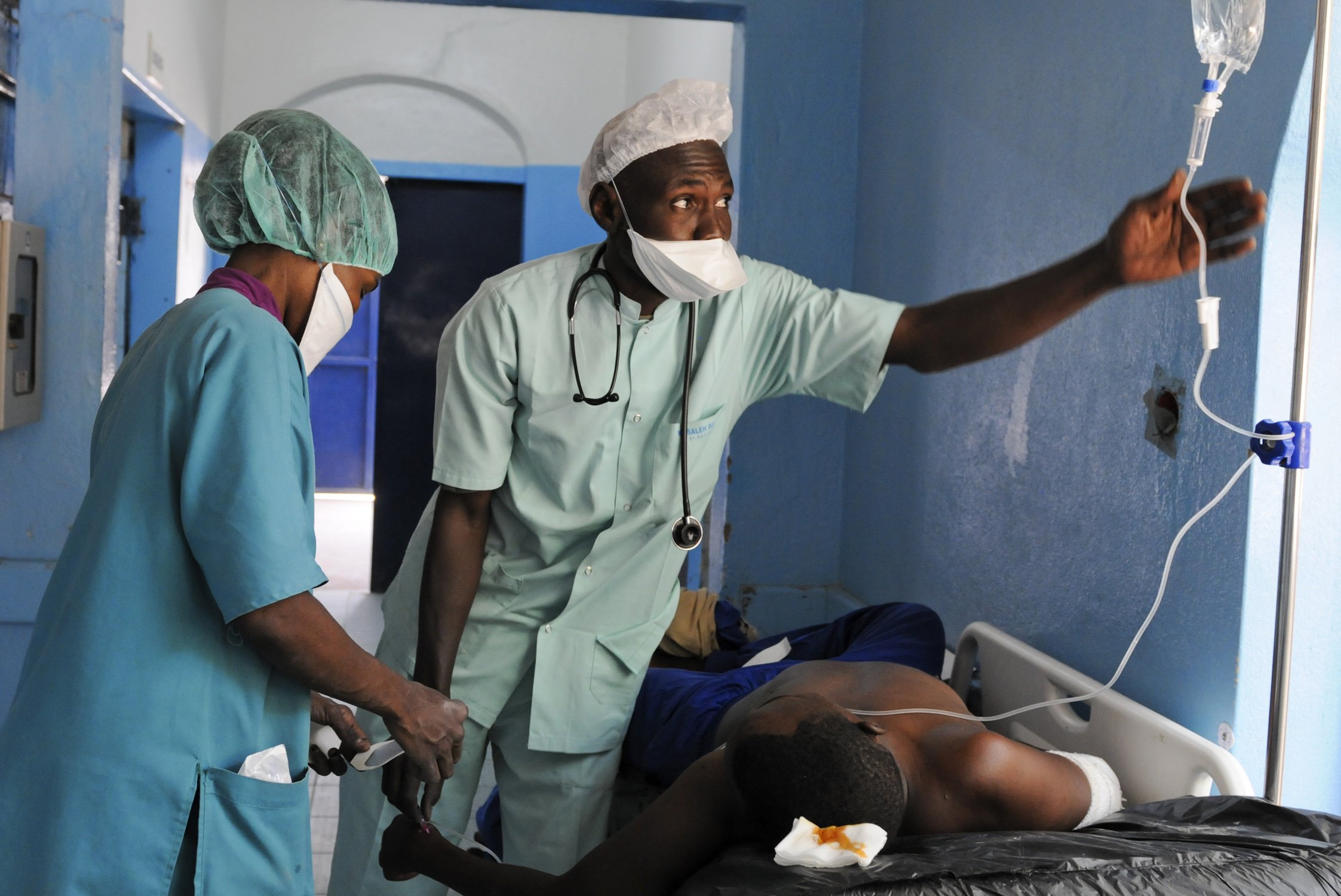A Global Call to Arms Against Antimicrobial Resistance
Antimicrobial resistance (AMR) is a silent threat rapidly escalating into a global health crisis. While medical advancements have revolutionized healthcare, AMR renders once-effective treatments useless, jeopardizing the future of modern medicine. Working in a national public health agency, I've witnessed firsthand the alarming rise of AMR and the inadequate response from low- and middle-income countries (LMICs).
Let's travel to a remote Nigerian village. My young relative, Chioma, battles a recurring bacterial infection. Years of self-medicating with readily available antibiotics have created a formidable foe. In the past, such infections yielded to antibiotics, but now they pose a relentless threat. Chioma's story exemplifies a growing global problem – common infections regaining their life-threatening potential. A 2019 report by the Institute for Health Metrics and Evaluation reveals a staggering 1.27 million deaths directly linked to drug-resistant infections, with the highest mortality rates in sub-Saharan Africa and South Asia. The culprit? Misuse of antibiotics and a lack of awareness about AMR among both the public and healthcare professionals in LMICs.
AMR poses a grave threat. It renders antibiotics, antivirals, and antifungals increasingly ineffective, jeopardizing the ability to treat many infections. For LMICs already burdened by infectious diseases, the consequences of AMR could be catastrophic. Witnessing the inadequate response from these governments in tackling AMR is disheartening. The situation demands a comprehensive and coordinated effort.
The 2015 World Health Assembly approved the Global Action Plan (GAP) on AMR, outlining five key goals: raising awareness, bolstering research and surveillance, preventing infections, optimizing antibiotic use, and fostering investment. Countries were encouraged to develop national action plans (NAPs) to combat AMR. While 163 countries, including 47 from Africa and 11 from Southeast Asia, have established NAPs, a recent Lancet analysis exposed a critical gap – a lack of sustainable domestic funding for their implementation.
Governments must prioritize public awareness campaigns. Educating both healthcare providers and the public on antibiotic misuse, self-medication dangers, and completing prescribed courses is vital. Additionally, the accessibility and affordability of healthcare services significantly impact AMR rates. Limited access to basic healthcare in LMICs fuels antibiotic misuse and hinders surveillance of resistant strains. Governments must prioritize improving healthcare infrastructure to ensure quality services are readily available.
National leadership plays a pivotal role in implementing and enforcing effective policies. Governments must allocate resources for developing and implementing NAPs, including robust surveillance systems, antibiotic stewardship programs, and regulations to control antimicrobial use. Stronger regulation of both over-the-counter and prescription antibiotic sales is essential. Weak regulations contribute to unrestricted access, facilitating misuse and accelerating resistance. Governments must enforce strict regulations and penalize offenders to preserve the efficacy of these crucial drugs. The Lancet report highlights the inadequacy of current policies, especially in LMICs, to effectively combat the magnitude of AMR.
Collaboration with international organizations, research institutions, and pharmaceutical companies is crucial for developing new antibiotics and alternative therapies. Governments must invest in research and development, incentivizing innovation in the pharmaceutical sector to address the evolving challenges of AMR. High-income nations have implemented stringent antibiotic use regulations, invested in research and development, and collaborated internationally. However, the stark disparity in combating AMR between high- and low-income countries necessitates immediate action to bridge this gap.
The fight against AMR requires prioritizing resource allocation, implementing effective policies, and fostering international cooperation. As a public health advocate, I urge our leaders to recognize the gravity of the situation and act decisively before we lose the battle against antimicrobial resistance. The time to act is now, and the stakes could not be higher.
LMIC governments must take immediate and decisive action. By prioritizing public awareness, improving healthcare infrastructure, enforcing regulations, and fostering international collaboration, they can mitigate the AMR threat and safeguard public health for future generations. The cost of inaction is too high – let's act now to ensure a healthier future for all.
